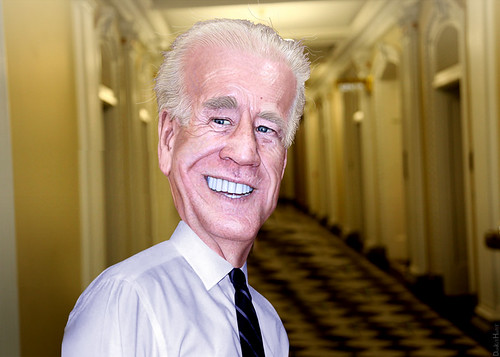Did US President Joe Biden say the quiet bit out loud at the weekend when he indicated that Washington wanted regime change in Moscow? It may well have looked that way to his Russian counterpart Vladimir Putin.
Earlier this month, Biden accused Putin of being a "war criminal" even though the charge drips with hypocrisy. Biden himself has played a critical role in Washington's own historic war crimes, from ensuring Congressional authorization of the illegal invasion of Iraq in 2003, to his part in the Obama administration's expanded campaign of drone strikes across the Middle East.
Then on Saturday, Biden characterized Putin as a "butcher", who "cannot remain in power". Perhaps unsurprisingly, Washington officials quickly backtracked while European allies scrambled to limit the damage of comments suggesting the US might seek to depose the leader of a rival nuclear power. Biden himself backtracked later.
But Putin has only to look to other recent examples of Washington meddling around the globe - from Afghanistan, Iraq, and Libya, to Syria, Iran, and Venezuela - to see that regime change has regularly been front and center of it's playbook. Based on that record, why would Putin imagine his own government would fare better?
US ambitions for regime change supposedly justified by efforts to stop war crimes, have been at the heart of US foreign policymaking in the post-Soviet era. In fact, one could argue persuasively that it was just such policies that unleashed the chain of events that culminated in Russia's illegal invasion of Ukraine.
Expansionist PowersA popular meme on social media is that, if Ukrainians were once unsure whether they wanted to join Nato, Russia's invasion has retrospectively proved how justified it was to seek membership of the western military alliance: it would have warded off Russian aggression.
There is a circularity to this reasoning. One could equally argue that, if the Ukrainian government had opted for neutrality rather than flirted with Nato, offering to become effectively a beachhead for the US and its military allies on Russia's border, then Putin might not have chosen to invade.
Hypothetical debates of this kind are fruitless. What can be known with much greater certainty is that, had Washington not flagrantly violated the prohibition on launching a war of aggression, as it did in Iraq, Putin would have struggled to rationalise his own war in Ukraine.
But it is not just that Biden and the other architects of the invasion of Iraq effectively nullified international law, making it easier for Putin to follow suit. They also confirmed suspicions in Moscow that the US and its European allies, such as the UK, were still expansionist powers, bent on imperial conquest.
Recent history had already shown Putin that he had every reason to distrust Washington's claims that it has no malign intentions towards Russia. Biden simply confirmed that suspicion with his latest regime change remarks.
To understand how things look to the Kremlin, one has to recall a pattern of events following the fall of the Soviet Union. What attention has been paid to that period focuses on the question of whether Washington made promises that Nato would not expand into the former Soviet states. The documentary record suggests it did. Deception appears to have been at the heart of US designs.
But that was not the only, or even the chief, problem. Through the late 1990s, two self-serving and dangerous ideas became fused in the imagination of Washington's foreign policy elite.
First, during Nato's 78-day bombing campaign against Serbian forces during the 1999 Kosovo war, the US and its allies established the West's right both to ride roughshod over international law and to do so in the name of a dubious humanitarianism - or a "responsibility to protect", as it was marketed at the time.
Notably, Putin has made similar claims in invading Ukraine, arguing that his aim is to "denazify" his neighbour and protect ethnic Russian communities in the Donbas region from attack by Ukrainian ultra-nationalists.
(Note: You can view every article as one long page if you sign up as an Advocate Member, or higher).






